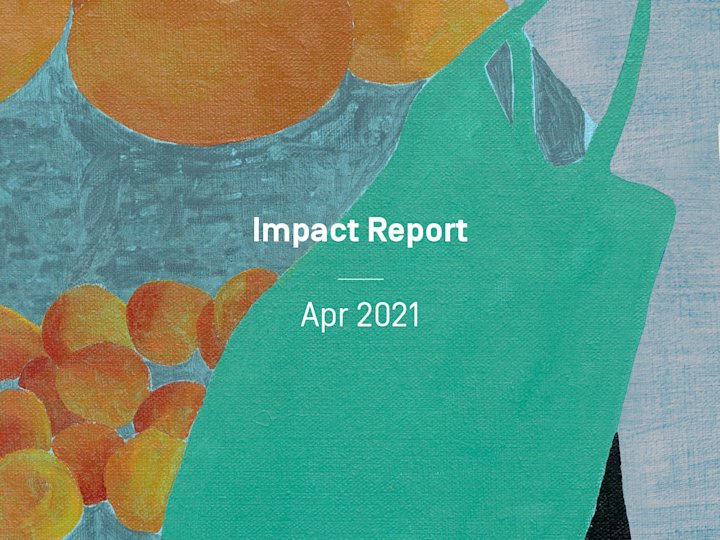Our Impact Report is a compact monthly update that keeps you up to date on our progress. This is where you’ll find all the latest facts and figures about our projects in April.

Your money is our capital – for change
Your money is our capital. Unlike at many other conventional banks, it is not invested in the arms industry, factory farming or coal-fired power plants. So the more money we take away from these banks, the better. Money, after all, needs to be part of the solution, not the problem.
The more money that is paid into our accounts, the more good we can do. In the month of April, our customers had a total of

euros in their Tomorrow accounts. That is equivalent to around:
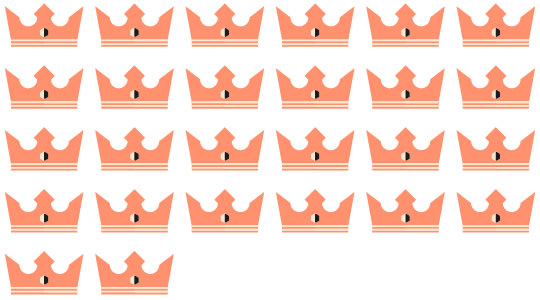
26 times the value of the Swedish crown jewels, which were stolen in 2018 (and discovered in a bin a few months later).
13,400,000 euros of which
are being invested in two green bonds to develop renewable energies.

6,000,000 euros of which
are being invested in a social bond to create social housing.

50,000 euros of which
we invested in micro-loans that are mainly helping small-scale entrepreneurs in the Global South to become self-sufficient.

0 euros of which
are invested in the arms industry, factory farming or coal-fired power plants.

Our joint contribution to protecting the climate
Every time you use your Tomorrow card in a store, a small fee is paid to us by the retailer. But instead of pocketing the money for ourselves like other banks do, we are investing it in a forest protection project in Brazil. The more often you pay using your Tomorrow card, the more square metres of rainforest are protected.

square metres of rainforest were protected in April thanks to the climate protection contribution and other initiatives. That is equivalent to around:
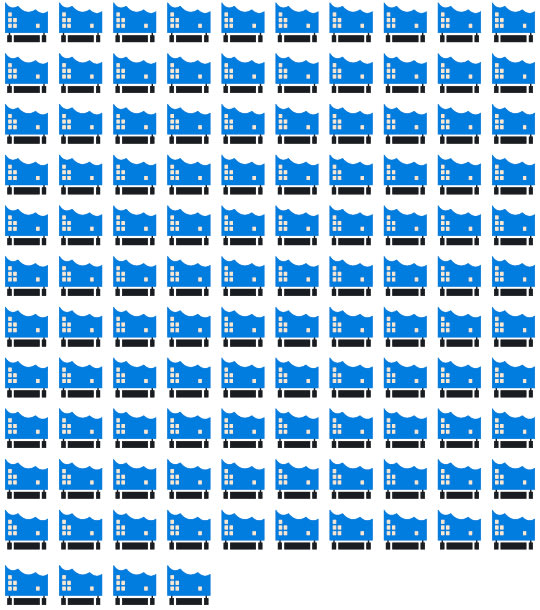
114 times the area of the Elbe Philharmonic Hall in Hamburg.
The Amazon is the world’s largest, intact rainforest and the climate protection contribution is helping to preserve it. The money is being donated to a forest protection project in Portel, Brazil, with the area we are protecting growing every month. That means we protected a total of
14,339,709
square metres of rainforest protected in the month of April.

2,745,193
trees were preserved.

3,709,108
kilograms of CO₂ were bound.

Offset your carbon footprint with Tomorrow Zero
With Tomorrow Zero, our premium account, you can offset as much CO₂ as the average German emits in a year: around 11 tonnes. The more of our users who switch to Zero, the more CO₂ will be offset. Together we can make a significant change.

kilograms of CO₂ were offset by Tomorrow Zero in the month of April. That is equivalent to around:
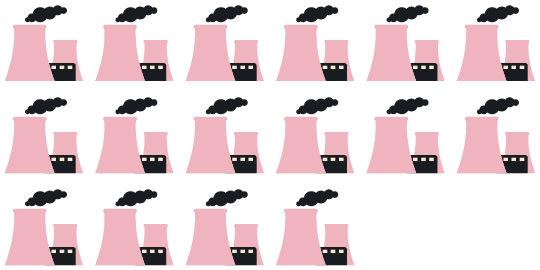
16 times the CO2 emission per day of the coal-fired thermal power station in Neumünster in Germany.
Specifically, we are currently funding two climate protection projects for the CO₂ compensation; the biogas plants project in Vietnam is now fully financed. Read more about how that works here.
3,879,181
kilograms of CO₂ were offset in the month of April with Zero.

1,939,591
kilograms by supporting smallholder farmers in Peru and protecting the rainforest.

1,939,591
kilograms by providing access to clean drinking water in Uganda. This removes the need to boil water over an open fire, which is harmful to the environment.
Tomorrow and the Sustainable Development Goals
In 2015, the United Nations defined a set of global goals for sustainable development: the Sustainable Development Goals (SDGs). Tomorrow is committed to these SDGs. In each of our Impact Reports we will pick out one of the goals and explain in more detail how we are contributing to fulfilling it.
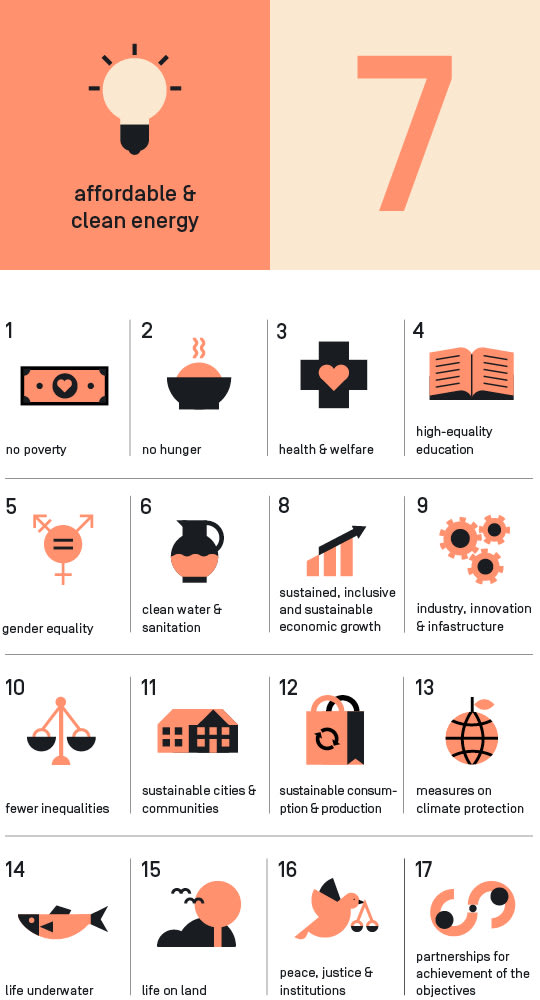
SDG 7: How Tomorrow is contributing to ensuring access to affordable and clean energy
Both of our green bonds, which we invest a share of our customer deposits in, are contributing to SDG 7 by promoting renewable energies, the expansion of capacities and energy efficiency. In more precise terms, the green bond of the NRW Bank promotes wind turbines, such as community wind farms, as well as the modernisation and repair of public amenities to improve their energy efficiency.
The NIV Environmental Bond also promotes renewable energies and energy-efficient construction in accordance with green housing standards in order to save precious resources.

Credit: Karsten Würth | Unsplash
And we are also doing our bit to fulfil the goal as a company – by ensuring that not a single cent of our customers’ money is invested in fossil-fuel energies. In addition to that, we obviously also use 100% green electricity and go to great lengths to further reduce our energy consumption.
